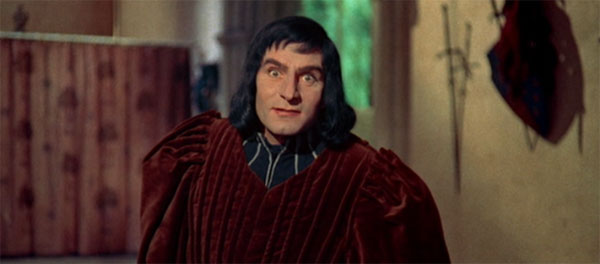|

| Laurence
Olivier's 1956 film of Richard III premiered on NBC
Television the night before it opened in theatres.
Richard
III's premiere on television was bitterly opposed by Olivier,
but it was insisted on by the film's American backers when NBC paid
$50,000 for the broadcast rights. The network advertised the film by noting
the presence of Olivier, Sir John Gielgud, Sir Ralph Richardson and
Sir Cedric Hardwicke in the cast and exclaiming "Yessiree! When
do four good (k)nights equal three top TV hours?" The exposure
the film received for the stunt was the reason given for Olivier's surprise
Best Actor nomination.
Liv
Ullman was exposed to similar circumstances in 1974,
when her acclaimed performance in Ingmar Bergman's Scenes From A Marriage was disqualified for an Oscar nomination
because it had premiered on Swedish television first. A letter
to the Los Angeles Times was signed by a group of actresses (including
ultimate nominees Gena Rowlands, Diahann Carroll and winner
Ellen Burstyn) demanding that Ullman be made eligible for the award,
but to no avail. Ullman told interviewers "Perhaps all those actresses
campaigning on my behalf is more gratifying than the award itself."
Several documentaries and short subjects which have received Oscars and nominations premiered on television
prior to their theatrical release, including The Sorrow and the Pity and Scared Straight! |
Return to Jonny's Oscar Trivia
Quiz
|
